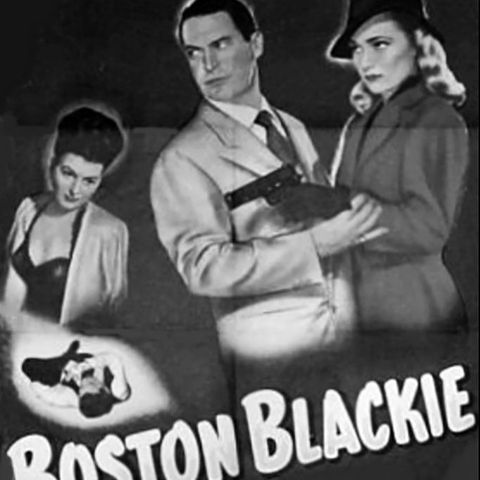"Boston Blackie" is a radio crime drama that thrilled audiences from the mid-1940s to the early 1950s. The show was based on a literary character created by Jack Boyle in the 1910s, which had already enjoyed success in silent films and early talkies. The character of Boston Blackie is an ex-jewel thief turned amateur sleuth, embodying the archetype of the "reformed criminal." He is suave, smart, and often finds himself embroiled in mystery and intrigue, operating in the grey areas of the law to ensure justice is served.The radio version of "Boston Blackie" is known for its sharp dialogue, clever plot twists, and engaging stand-offs between Blackie and his perennial foe, Inspector Faraday of the police. Faraday considers Blackie his number one suspect in any crime, which adds a layer of dramatic tension and humor to the series as Blackie must not only solve the case but also clear his name time and time again.The series, often introduced by the dramatic theme of "The Rogue's March," features the voice of Chester Morris, who also portrayed Blackie in a series of films. Morris's smooth and confident portrayal of the character made Blackie both likeable and believable as a detective who always stayed a step ahead of the police and the real criminals.Episodes typically open with a mystery, often involving a murder or a heist, with Blackie becoming involved either by happenstance or because he is framed or implicated in some way. With the help of his girlfriend Mary Wesley and his sidekick "The Runt," Blackie would cleverly piece together the clues, using his criminal know-how to outsmart the true culprits.The show's formula included a mix of action, witty banter, and puzzle-solving, which made it a staple of classic radio programming. While "Boston Blackie" may not have had the psychological depth of some of its contemporaries, its charm lies in its fast pace, its charismatic protagonist, and the classic battle of wits that played out in each episode, making it a fondly remembered piece of the golden age of radio.
mostra meno


